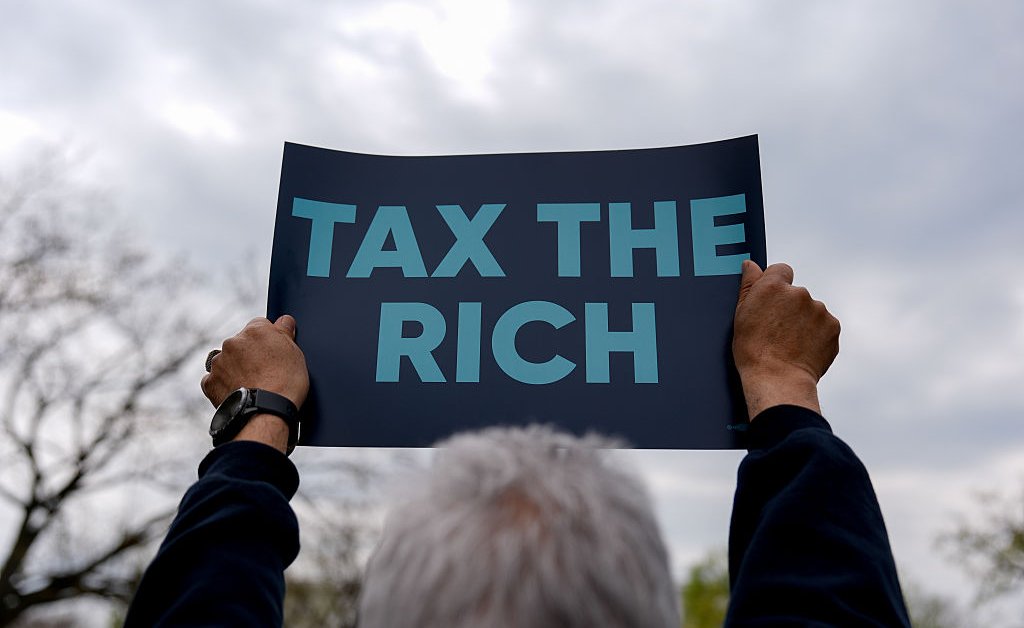As the United States reaches its 250th year, the widening gulf between the very rich few and the rest of us has become glaringly apparent. In 2024, the richest 10% held over 67% of household wealth in the U.S., while the bottom half held just 2.4%. This wealth increasingly entitles one to power and privilege: there are numerous billionaires in key positions in the Trump Administration, and some (including the President) have used their public offices for financial gain.
The Founders would be horrified by these developments because they believed great wealth in politics would corrupt and destroy the republic. Those beliefs were shaped by a range of influences: the widely read works by Roman historians who blamed the empire’s decline on a widening gap between rich and poor; radical Protestants who called for a Godly republic with limits on property or even its redistribution in a Great Jubilee every 50 years; James Harrington’s 1656 novel Oceana, describing an island country with a constitution that gave land to all and placed explicit limits on income and wealth; Enlightenment philosophers, particularly John Locke’s Two Treatises of Government (1689), which argued “all Men by Nature are equal” and that individuals should not hoard surplus wealth; and Cato’s Letters, a series written by British “radical Whigs” in the 1720s who, angered by the infamous South Sea Bubble, called for reforms while bitterly criticizing the corrupting ties between wealth and politics.
By the mid-18th century, Anglo-Americans generally believed in the virtues of a “rough” economic equality, that a republic needed to avoid concentrated wealth and great poverty in order to maintain the public good and prevent corruption. These ideals held particular power because they reflected the experiences of most British Americans. Widespread property ownership among white settlers meant that in every province a far higher percentage of white adult men could vote than in England. Even the wealthiest Southern planters needed the political support of their poorer—yet still property-holding—neighbors.
Read More: How Insecurity Became the New Inequality
The widespread embrace of these ideas can be glimpsed in the publication of Cato’s Letters in the Boston Independent Advertiser in 1748. The very first selection included the warning that when a man’s wealth “become immeasurably or surprising great,” the community “ought to make strict Enquiry, how they came by them, and oblige them” to surrender part of their riches. “But, will some say, is it a Crime to be rich? Yes, certainly. At the publick expence, or to the Danger of the Publick.” The Advertiser was edited by Samuel Adams for artisans and laborers fired up by their successful resistance to impressment—the Navy’s effort to grab men for forced service—and concerned about rising poverty in the postwar depression. Sixteen years later, Adams would organize those artisans and laborers into the Sons of Liberty to resist British imperial measures.
These egalitarian ideas became more apparent as the conflict with London deepened and moved towards revolution. In his 1773 election sermon, Benjamin Trumbull warned Connecticut’s governor and legislators that if a few were allowed to “amass all the riches and wealth of a country” they would “by fraud or force . . . oppress and tyrannize over their fellow-men.” To avoid that evil, the community needed to keep property “as equally divided as possible.” Three years later, such a measure nearly became part of Pennsylvania’s first constitution when a delegate, probably Benjamin Franklin, proposed empowering the legislature to take “excessive” property from individuals because concentrations of wealth were “a danger to the happiness of mankind.”
As the War for Independence widened and inflation became a major problem, many states and towns sought to regulate prices, in part for egalitarian reasons. For example, in May 1777, committees of safety in Plymouth County began their resolution supporting Massachusetts price limits by insisting that “the felicity, freedom, and happiness of a community” depends on “an equitable exchange of the fruits of the earth.” Two years later, as inflation returned, a huge Philadelphia gathering denounced the wealthy and elected a committee to lower prices. When a merchant committee condemned those restraints, the committee insisted that civil society required “subordination to the common good” and argued that those who had built the merchants’ ships were entitled to regulate goods carried on the vessels.
As the war ended, many white Americans believed that they lived in the most egalitarian country on earth, where most free men could vote due to, as Noah Webster wrote, the “general and tolerably equal distribution of landed property.” But they also feared a future aristocracy of wealth, and thus considered measures to forestall that evil. Some called for limits on landholding, including the biblical Great Jubilee that would prevent “land monopoly” by cancelling debts and returning land to the original owners. Thomas Jefferson and others talked about progressive property taxes. And Thomas Paine called for a 10% estate tax to fund old-age pensions and a payment to every person at 21.
These proposals failed but there was one noticeable change: by 1800, nearly every state abolished the traditional laws of entail (permanently blocking the division or alteration of property) and primogeniture (inheritance of the entire estate by the eldest son) in order to encourage the division of large estates. At least in Virginia, those reforms, spearheaded by Jefferson, did reduce the size of inherited farms.
Unfortunately, this focus on land overlooked the growing role of financial wealth: as trade and manufacturing flourished, power was increasingly measured in dollars rather than acres. When wage labor and economic inequality increased in the early 1800s, states extended the vote to all white men regardless of property. This severed the connection between property and polity, relieving pressure to limit wealth while making the racial barrier explicit.
But America’s egalitarian tradition did not disappear. It would be revived by Workingmen’s parties in the late 1820s, communitarian efforts in the 1840s, calls in the mid-1860s to redistribute Confederate plantations to freed Black men, and labor and farmer movements into the 20th century. More persistent has been the widespread fear that great wealth poses an existential threat to America’s democracy. Perhaps the 250th commemoration of the Revolution would be the time to again consider limits on excessive wealth and its political influence.
Daniel Mandell, Emeritus Professor of History, Truman State University, is the author of The Lost Tradition of Economic Equality in America, 1600-1870 (2020) and seven books on New England Native American history.
The Road to 250 series is a collaboration between Made by History and Historians for 2026, a group of early Americanists devoted to shaping an accurate, inclusive, and just public memory of the American Founding for the upcoming 250th anniversary.
Made by History takes readers beyond the headlines with articles written and edited by professional historians. Learn more about Made by History at TIME here. Opinions expressed do not necessarily reflect the views of TIME editors.




